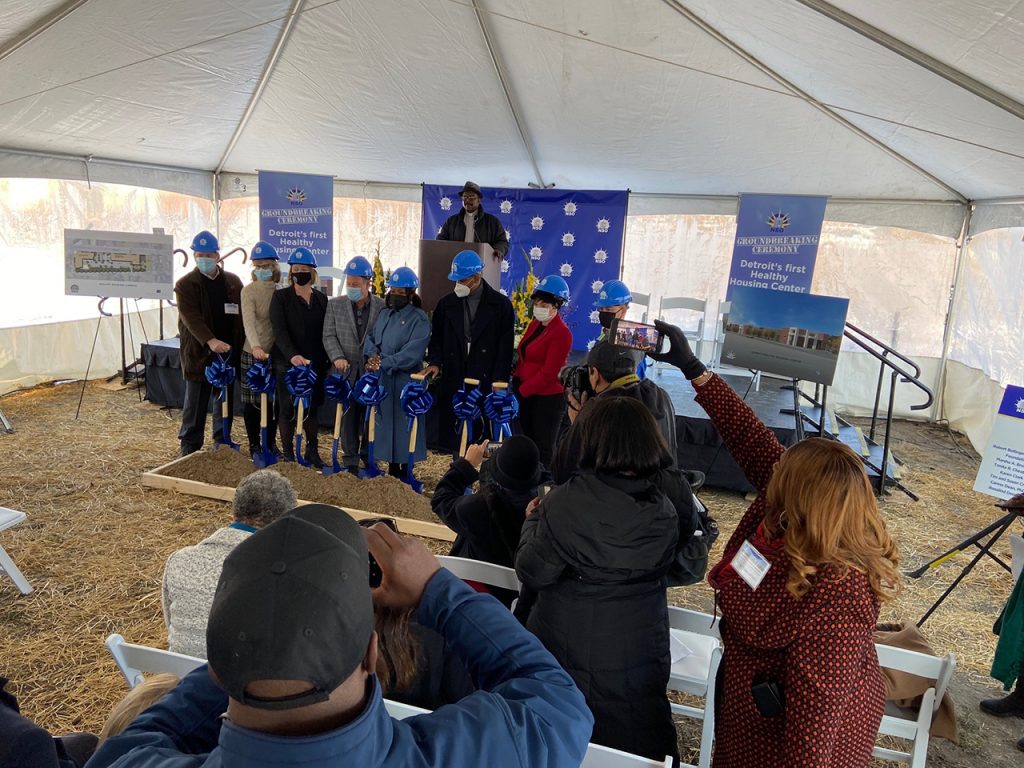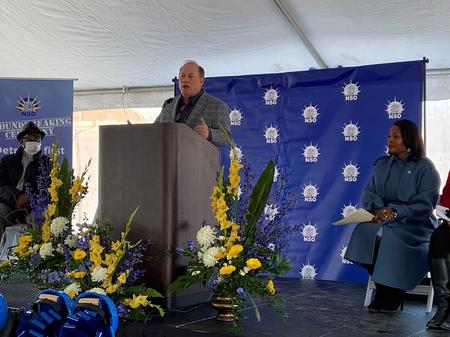Detroit Healthy Housing Center Aims to Serve the City’s Homeless Population and Community
NSO President and CEO Linda Little says the facility aims to reduce inequities in health care for homeless individuals whose medical needs often go untreated until they reach the point of emergency.

Detroit is getting a campus to house and serve the city’s homeless population.
Neighborhood Service Organization (NSO) is building the Detroit Healthy Housing Center to provide access to primary and behavioral health care for dozens of medically at-risk adults. The eastside Detroit facility will provide emergency shelter to 56 adults and 17 beds for homeless individuals to receive continuing care post-hospitalization.
“It’s so important that we take this step towards a holistic approach to address disparities to meet people where they are and to offer this simple access to wraparound services that can provide an array of support.” –Elizabeth Hertel, Michigan Department of Health and Human Services
NSO president and CEO Linda Little says the center should reduce inequities in health care for homeless individuals whose medical needs often go untreated until they reach the point of emergency.
“They are five times more likely to be hospitalized. They have higher rates of ED [Emergency Department] utilization and hospital readmissions. And they’re not connected to wellness and preventive care,” Little says.
The 22,000-square-foot facility is the second and final phase of NSO’s Healthy Housing Campus. Developers say the $22 million project includes the Clay Apartments, which offers 42 units for adults experiencing homelessness. The City of Detroit’s Housing & Revitalization Department funded $4.1 million of the project’s cost through Community Development Block Grants CARES.

State officials say the site is the first of its kind in the nation. Elizabeth Hertel, the director of the Michigan Department of Health and Human Services, says housing often determines health outcomes.
“So it’s so important that we take this step towards a holistic approach to address disparities to meet people where they are and to offer this simple access to wraparound services that can provide an array of support,” Hertel says.
Hertel says 61,000 Michigan residents experienced homelessness in 2019. She says more than half identified as Black. African Americans make up 14% of the state’s population.
The center will also have a health care clinic – which will offer primary care, behavioral health, dental services and a pharmacy – open to the public and other on-site services, including job readiness training.
“This resource will undoubtedly have a positive impact on the individuals served, but it also will relieve stress on the system of care in Detroit,” Little says. “Our hope is to take these lessons learned to scale healthy housing to other communities that may benefit.”
Trusted, accurate, up-to-date.
WDET strives to make our journalism accessible to everyone. As a public media institution, we maintain our journalistic integrity through independent support from readers like you. If you value WDET as your source of news, music and conversation, please make a gift today.
